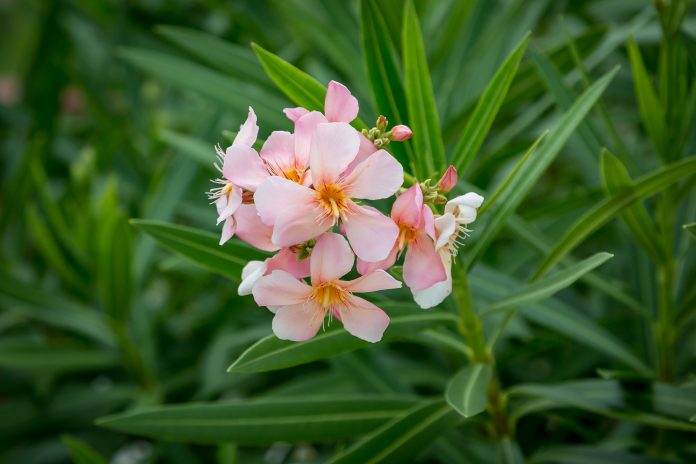
Silver Spring, MD—FDA has rejected Oleandrin as a supplement on the grounds that it has been studied as a drug, according to a letter from FDA.
Phoenix Biotechnology Inc. submitted Oleandrin as a dietary supplement ingredient on June 2. The extract comes from the Nerium oleander plant, which is highly toxic. In August, President Trump and the creator of MyPillow Mike Lindell participated in a meeting floating the use of Oleandrin for coronavirus; at the time, organizations including the American Botanical Council (ABC) and the American Herbal Products Association (AHPA) discouraged the use of oleander, noting its extreme toxicity. ABC Founder and Executive Director Mark Blumenthal said in a statement: “With respect to oleander, all parts of the plant are highly toxic, dangerous, and life-threatening when ingested. Consumers should not, ever, try to make a homemade remedy from or self-treat with oleander.”
While FDA rejected Oleandrin on the grounds that it has been studied as a drug, the letter stated: “We also note that, even if ‘Oleandrin’ was not excluded from the definition of dietary supplement, the agency has significant concerns about the evidence included in your submission as a basis for concluding that a dietary supplement containing ‘Oleandrin’ will reasonably be expected to be safe under the conditions of use described in your notification.”
Related: FDA Sends Warning Letter to Amazon Associate
Industry Groups Have Mixed Reactions to Legislation to Regulate CBD
CBD May Help Prevent Lung Destruction in COVID-19, Researchers Report
The letter says that Phoenix Biotechnology cited a history of medicinal use of Nerium oleander extracts as well as clinical and pre-clinical studies of certain preparations, but that the submission did not provide sufficient evidence to establish that that information is qualitatively and quantitatively related to the ingredient. It continued: “Furthermore, studies performed in advanced cancer patients generally cannot establish the safety of your ingredient in its intended population of normal healthy adults, and you did not provide any information to indicate that such extrapolation between different populations would be scientifically valid.”
The letter concludes: “If it were a dietary supplement, a product containing your ingredient, ‘Oleandrin,’ may be adulterated.”
The letter did not mention COVID-19.

